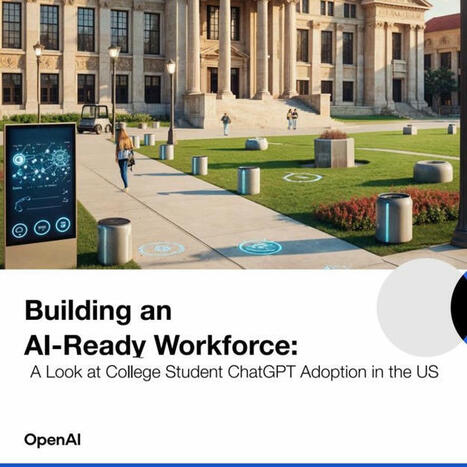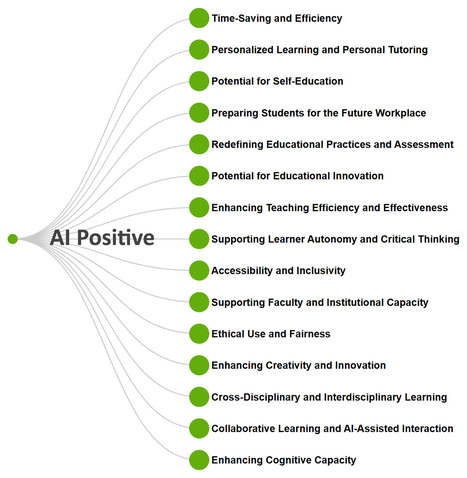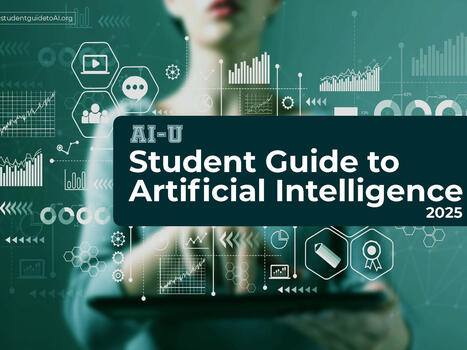As a new type of artificial intelligence, ChatGPT is becoming widely used in learning. However, academic consensus regarding its efficacy remains elusive. This study aimed to assess the effectiveness of ChatGPT in improving students’ learning performance, learning perception, and higher-order thinking through a meta-analysis of 51 research studies published between November 2022 and February 2025.
The results indicate that ChatGPT has a large positive impact on improving learning performance (g = 0.867) and a moderately positive impact on enhancing learning perception (g = 0.456) and fostering higher-order thinking (g = 0.457). The impact of ChatGPT on learning performance was moderated by type of course (QB = 64.249, P < 0.001), learning model (QB = 76.220, P < 0.001), and duration (QB = 55.998, P < 0.001); its effect on learning perception was moderated by duration (QB = 19.839, P < 0.001); and its influence on the development of higher-order thinking was moderated by type of course (QB = 7.811, P < 0.05) and the role played by ChatGPT (QB = 4.872, P < 0.05).
This study suggests that:
- Appropriate learning scaffolds or educational frameworks (Bloom’s Taxonomy) should be provided when using ChatGPT to develop students’ higher-order thinking.
- The broad use of ChatGPT at various grade levels and in different types of courses should be encouraged to support diverse learning needs.
- ChatGPT should be actively integrated into different learning modes to enhance student learning, especially in problem-based learning.
- Continuous use of ChatGPT should be ensured to support student learning, with a recommended duration of 4–8 weeks for more stable effects.
- ChatGPT should be flexibly integrated into teaching as an intelligent tutor, learning partner, and educational tool.
Finally, due to the limited sample size for learning perception and higher-order thinking, and the moderately positive effect, future studies with expanded scope should further explore how to use ChatGPT more effectively to cultivate students’ learning perception and higher-order thinking.


![[PDF] The effect of ChatGPT on students’ learning performance, learning perception, and higher-order thinking: Insights from a meta-analysis | Edumorfosis.it | Scoop.it](https://img.scoop.it/Ddw97hbwQ3Y6dniQfNhAmjl72eJkfbmt4t8yenImKBVvK0kTmF0xjctABnaLJIm9)


 Your new post is loading...
Your new post is loading...
![[documental] El sistema educativo representa la mayor trampa del mundo moderno I Schopenhauer y Nietzsche | Edumorfosis.it | Scoop.it](https://img.scoop.it/gOkgVPiL-_3BN9eB8mGArjl72eJkfbmt4t8yenImKBVvK0kTmF0xjctABnaLJIm9)

![[Video] Educating kids in the Age of AI | Edumorfosis.it | Scoop.it](https://img.scoop.it/vj4QFJ5ttxPWjOL00ixwUzl72eJkfbmt4t8yenImKBVvK0kTmF0xjctABnaLJIm9)




![[PDF] La IA en la Educación: Los futuros que nos esperan | Edumorfosis.it | Scoop.it](https://img.scoop.it/2iM4mKWcv5xduf7KMwBjwjl72eJkfbmt4t8yenImKBVvK0kTmF0xjctABnaLJIm9)
![[Opinion] AI will destroy Critical Thinking in K-12 | Edumorfosis.it | Scoop.it](https://img.scoop.it/gyujRaIGTHCcPSyWoBykBDl72eJkfbmt4t8yenImKBVvK0kTmF0xjctABnaLJIm9)



















La eficacia de ChatGPT en entornos educativos varía significativamente según los factores de implementación. Los mayores avances en el aprendizaje se producen en entornos de aprendizaje basado en problemas y en cursos orientados al desarrollo de habilidades. El tipo de curso, el modelo de aprendizaje y la duración moderan el impacto de ChatGPT en el rendimiento académico. Los estudios recomiendan un período de implementación de 4 a 8 semanas para obtener resultados óptimos y sugieren que ChatGPT es más efectivo cuando se integra como tutor inteligente para desarrollar habilidades de pensamiento de orden superior.
ChatGPT ofrece varias ventajas educativas, incluyendo experiencias de aprendizaje personalizadas, reducción de la carga de trabajo del docente y entornos de aprendizaje interactivos que responden a las necesidades del estudiante. Sirve como andamiaje efectivo para el aprendizaje personalizado en diversas disciplinas, desde la programación hasta la enseñanza de idiomas. Sin embargo, los investigadores advierten que distinguir entre la calidad de las respuestas de ChatGPT y los verdaderos avances en el aprendizaje requiere evaluaciones más complejas y basadas en proyectos, en lugar de problemas simples y bien definidos.